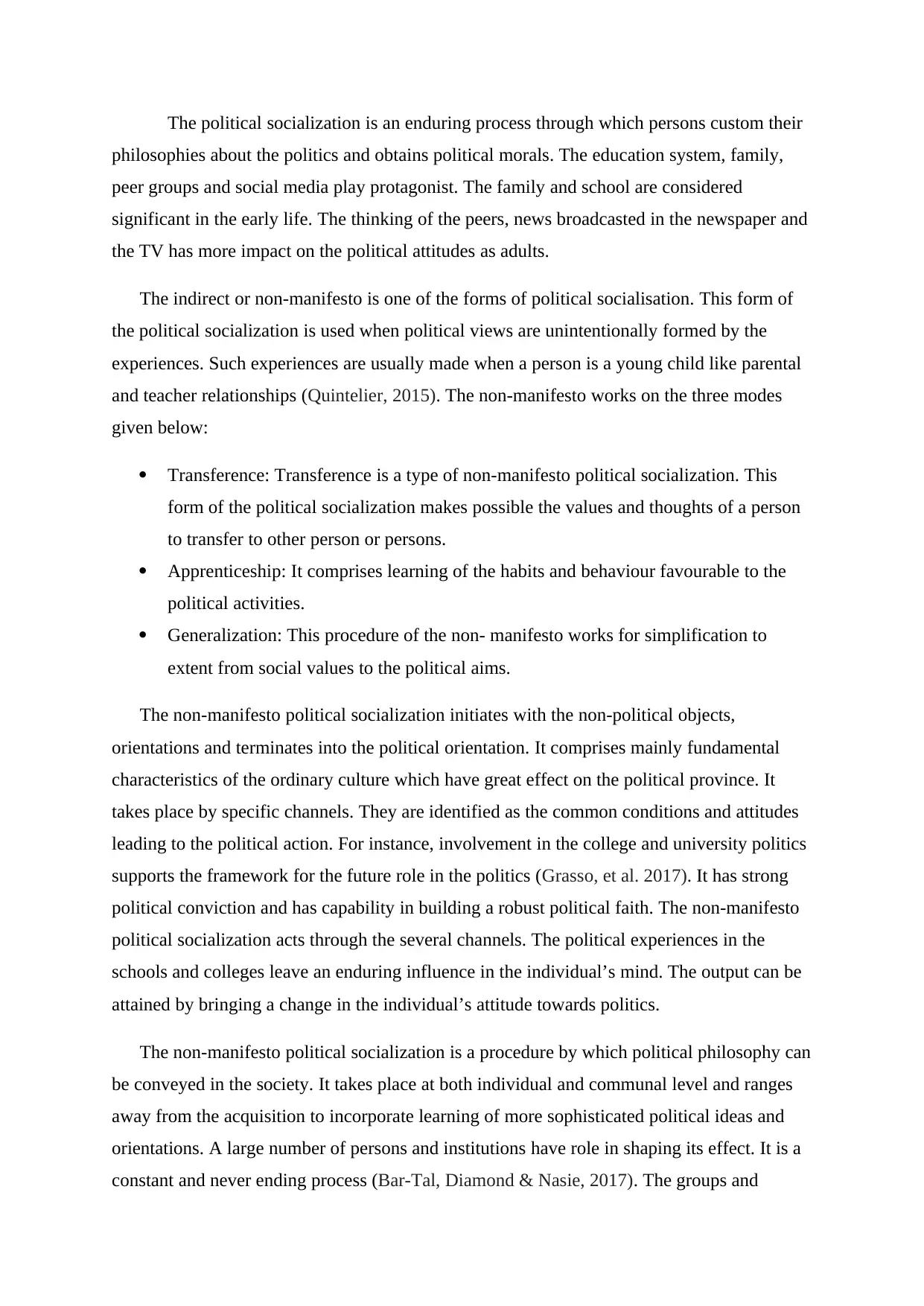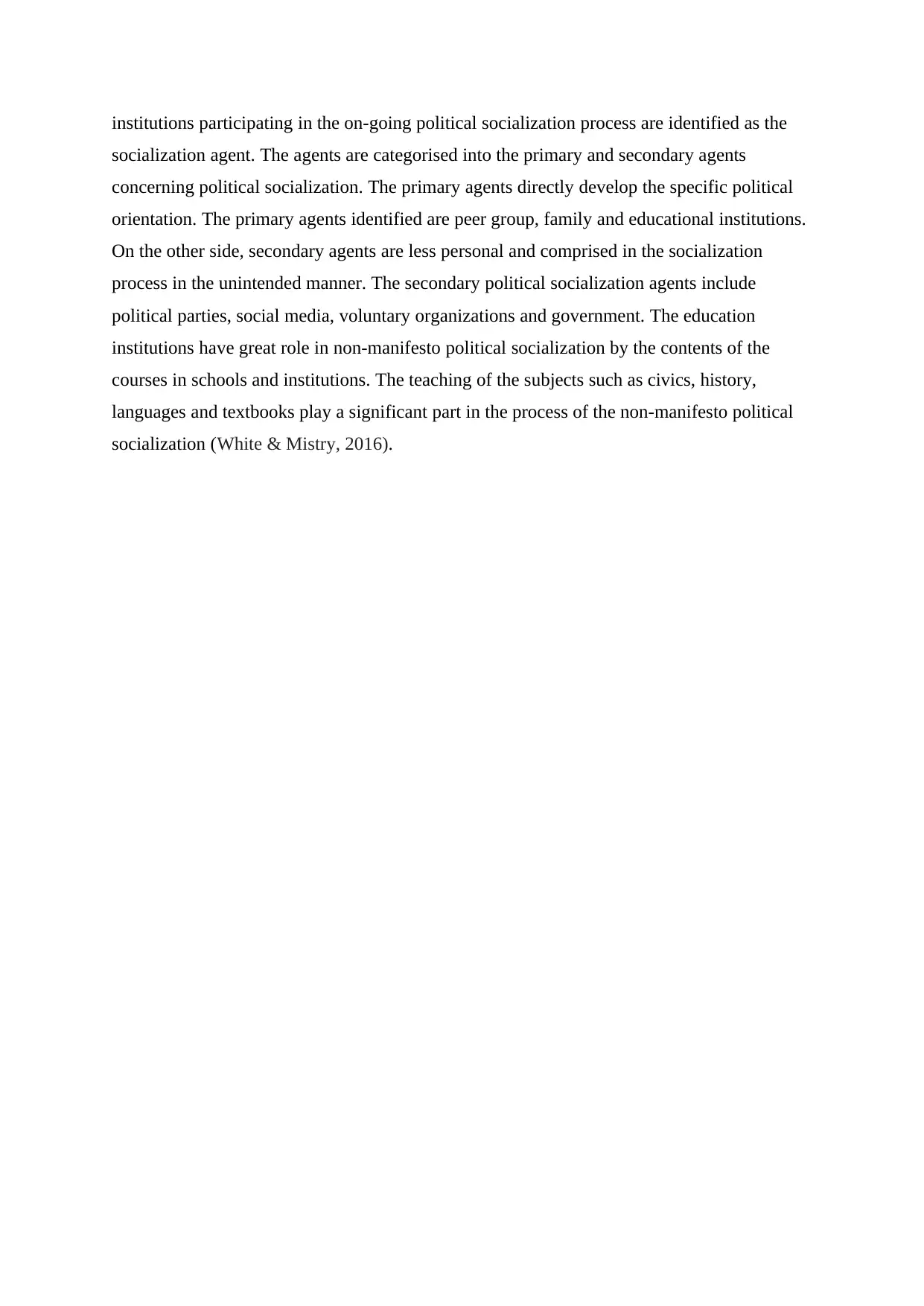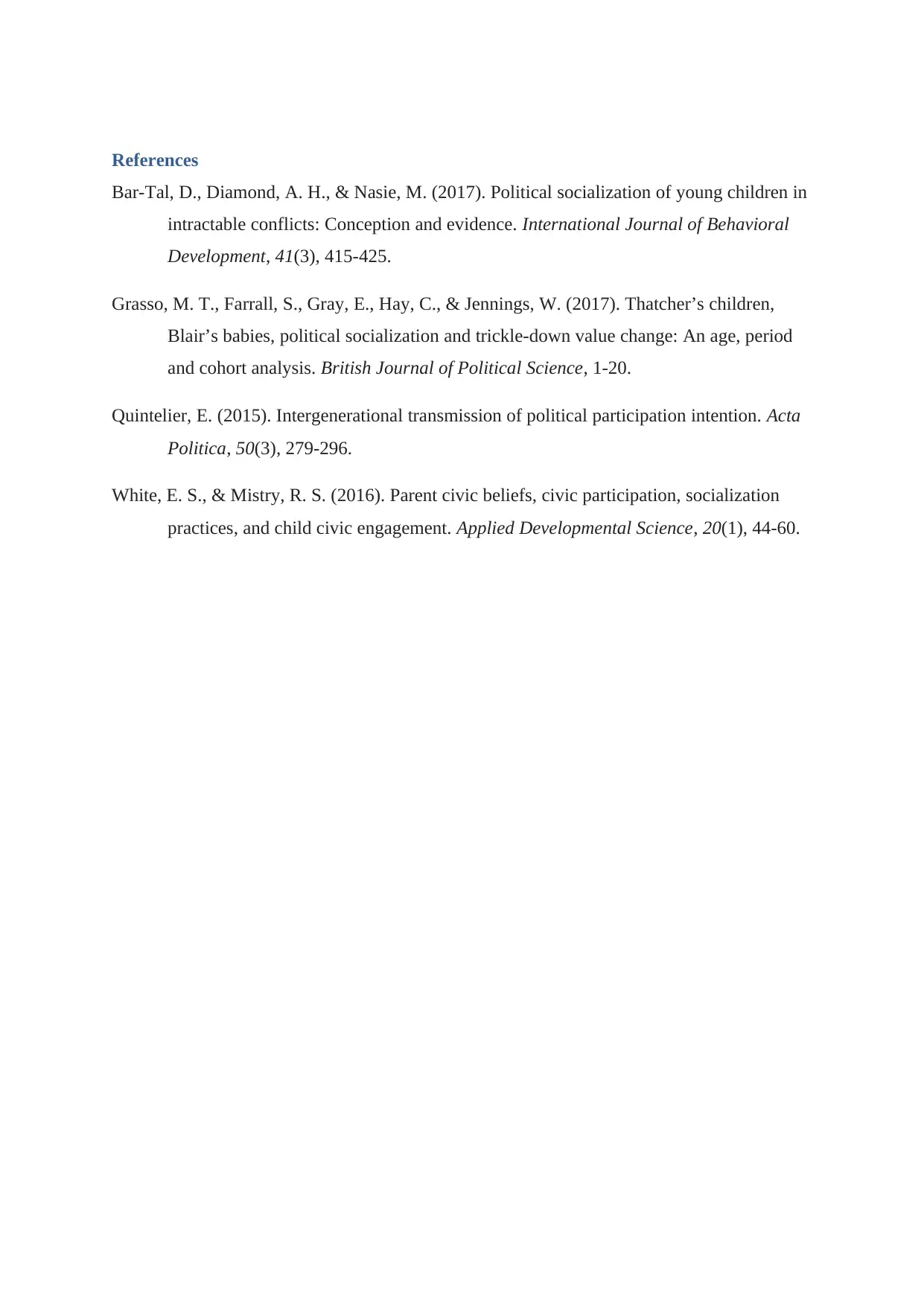Political Socialization: Agents, Processes and Impacts Essay
VerifiedAdded on 2023/01/05
|4
|747
|38
Essay
AI Summary
This essay delves into the concept of political socialization, an enduring process through which individuals develop their political beliefs and values. It highlights the significant roles of various agents, including family, education, peer groups, and social media, in shaping political attitudes. The essay focuses on non-manifesto political socialization, where political views are unintentionally formed through experiences like parental and teacher relationships. It outlines the three modes of non-manifesto socialization: transference, apprenticeship, and generalization. The essay further examines the primary and secondary agents of political socialization, such as family, schools, political parties, and social media. It emphasizes the lasting influence of education and the role of institutions in shaping political philosophy, occurring at both individual and communal levels. The essay concludes by highlighting the constant and ongoing nature of political socialization, emphasizing its profound impact on individuals and society.
1 out of 4











![[object Object]](/_next/static/media/star-bottom.7253800d.svg)